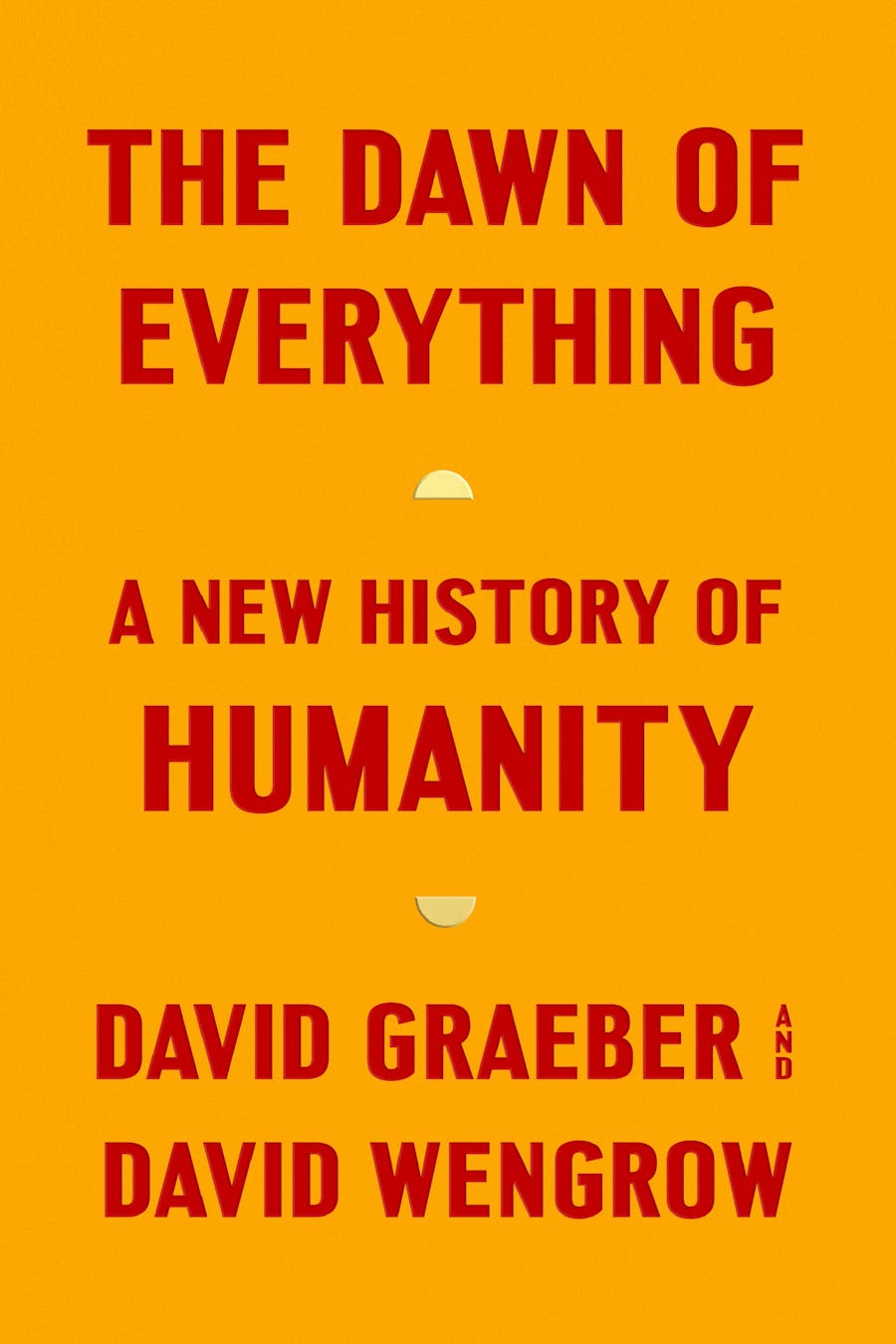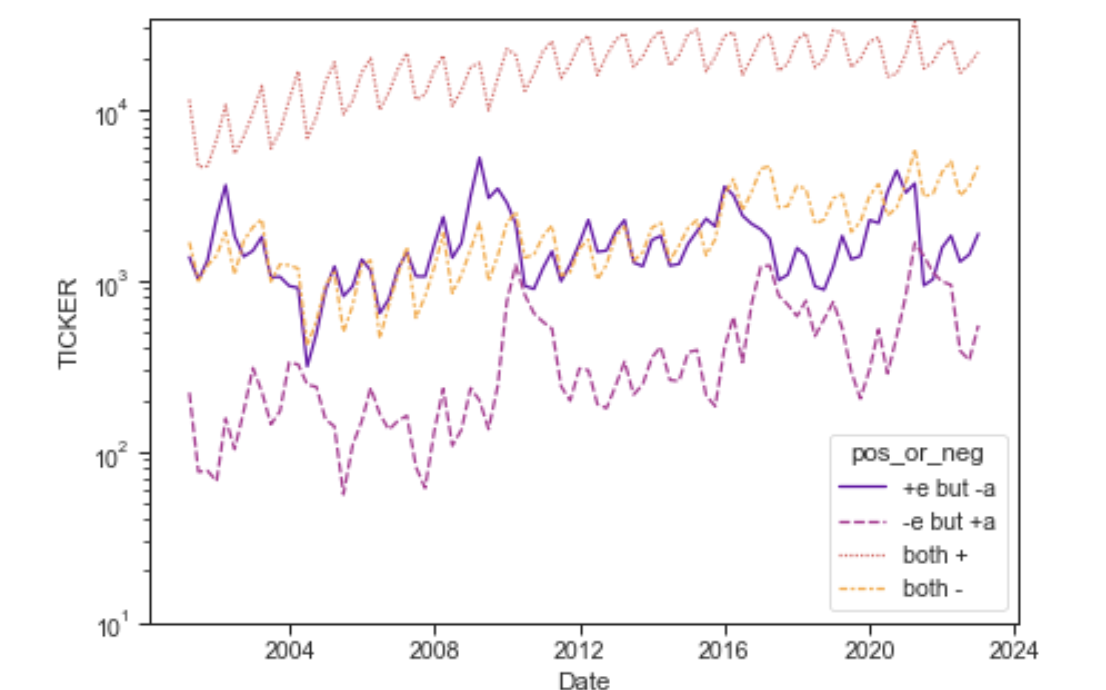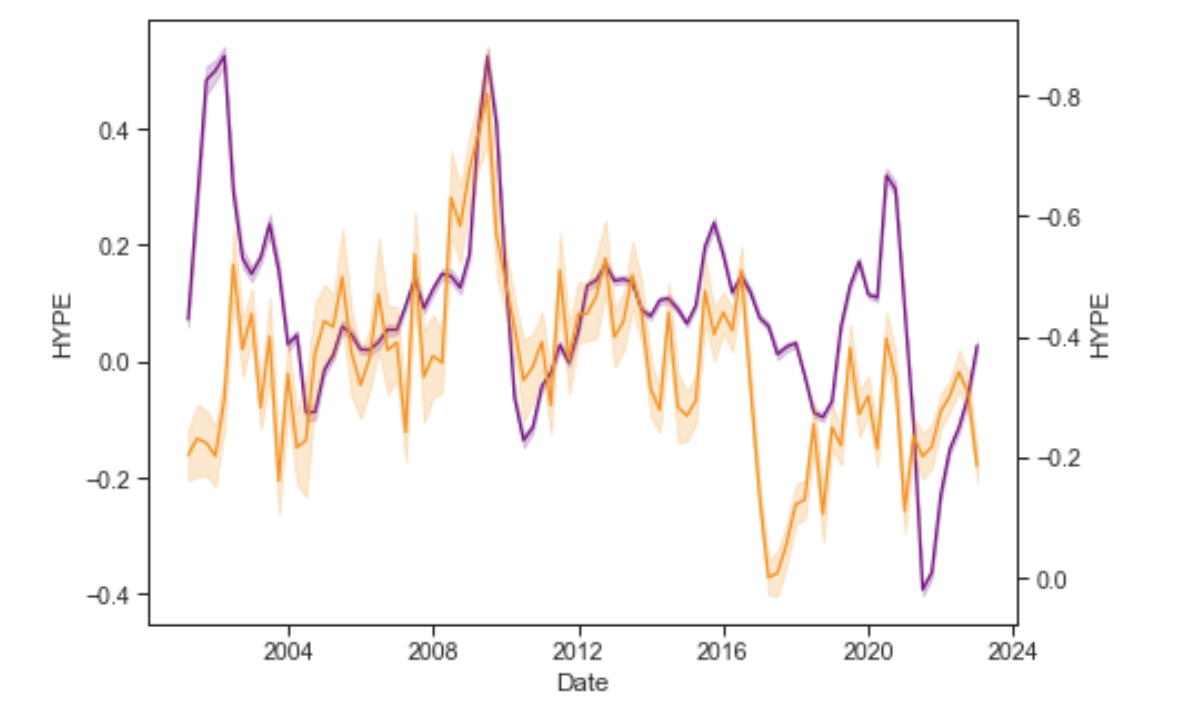Forum Replies Created
-
AuthorReplies
-
Added more to the list above:
Harakiri; Masaki Kobayashi; 1962; 133A must watch. This is an incredible film about a samurai cunningly exposing the hypocrisy of a powerful house that allowed a destitute samurai to commit harakiri.
L’Argent; Robert Bresson; 1983; 83
Counterfeit notes are passed around a French neighborhood and an innocent man becomes the victim.
Vagabond; Agnès Varda; 1985; 105
With a mixture of styles, Varda forces the audience to come to terms with a woman’s vagrancy. Is her condition forced on her, or is she living according to her idea of freedom?
November 1, 2024 at 9:56 am in reply to: The dark matter of CasP? What can’t we observe about capitalist power? #250166Hi Pieter,
I wonder how CasP methods are weakened by the use of indirect measures. In my work, I know that I have to work very hard to substitute for the inability to use measurements of market capitalization, as Hollywood studios are only parts of larger conglomerates.
Take the concept of differential accumulation. In my opinion, it is a concept that is as substantive as the evidence that fills it. Indirect measures are better than nothing, but the concept really shines when it is possible to empirically measure the significance of events — i.e., differential accumulation occurred after X, or in parallel with Y.
October 22, 2024 at 10:56 am in reply to: The dark matter of CasP? What can’t we observe about capitalist power? #250163To clarify, I am using a physics metaphor to illustrate the problem a theory will have with observable and unobservable phenomena. I was searching to find a general metaphor for the purposes of discussion. I had no intention to build new component of CasP with a more substantive concept of dark matter. I will let others decide what dark matter means in contemporary physics, and you are right be skeptical of integrating of an idea that is so foreign to accounting.
My curiosity relates to what Pieter and Jonathan are saying. CasP has blind spots and we might have different interpretations of what CasP is doing to solve for these blind spots. Is the method constructing problematic concepts in attempts to hide errors and assumptions? For example, Baines and Hager have published a critique of the CasP model of the stock market. As I read it, Baines and Hager believe that added concepts, like systemic fear, struggle to explain for the behavior of stock markets, relative to average income.
Finished Colson Whitehead’s The Underground Railroad. Liked it a lot, but I need to think more about why I don’t rate it as excellent. Stories of people surviving a horror that seems unending — The Road, The Orphan Master’s Son — can be tricky to tell, because you need tensions between hope and despair. The Underground Railroad was only a page-turner for 75% of the novel. However, the themes and descriptions of slavery in America were hair-raising.
Hi Byron,
We can break it down in parts:
– R2, R-squared, R^2: This is also called the coefficient of determination. Compared to other statistical methods or economic papers, BN are not using it in a overly complicated manor. My interpretation is this: there is a strong coefficient of determination between oil prices and differential EPS of oil companies. Therefore, it is likely for differential EPS to increase with rises in oil prices, and it is likely for a fall in oil prices to hurt differential EPS. Essentially, war in the Middle East can send the price skyrocketing, and price inflation is the main method for oil companies to profit relative to a benchmark, such as the S&P 500.
– Tying this to OPEC: In my opinion, they are anticipating counter-claims that studying oil in the Middle East is “more complicated” than they present. I imagine a scenario where someone at the end of a presentation says “What about OPEC and its conflict with the interests of [American and British] oil companies?” BN are not denying there is more to research in historical detail, but their evidence shows OPEC exports are not depressing the strength of the relationship between oil prices and profit.
- This reply was modified 2 years, 3 months ago by jmc. Reason: added differential to EPS
November 20, 2023 at 10:06 am in reply to: CasP RG v. 1.01: Graeber and Wengrow’s The Dawn Of Everything #249857Hi everyone. I want to thank everyone here for stoking the flame of discussion. For personal reasons, my reading of Dawn of Everything has been slower than planned. Had I more free time, I would have liked to generate a series of questions for chapters or sections.
So far I am enjoying reading The Dawn of Everything. I will say that the Davids can sometimes be too playful with evidence. Repeatedly they have this structure of argument:
1. Make a claim about the social intentions of an ancient Indigenous society
2. Acknowledge that there is insufficient archeological evidence for anthropologists to make claims about the social values and worldviews of an ancient Indigenous society
3. Derive the truth of #1 through a circuitous interpretation of archeological evidence
The Davids are working with the research that is available, but I wonder if the risk of this argumentative approach multiplies with each use.

Blood Meridian, or The Evening Redness in the West by Cormac McCarthy
Once in a while I read a novel that makes me incredibly jealous of the author’s ability to write prose. I’m not sure where my writing abilities actually lie — they are likely lower than I estimate — but I at least know the object of my jealousy is clearly in an entirely other league. McCarthy’s writing in Blood Meridian is unbelievably good and multiple parts cause me to stop and appreciate his style.
McCarthy’s writing amplifies the ferocity of the violence in a story that has an extremely violent premise — a group of outlaws and misfits are paid by state governments to scalp as many Indigenous people as they can. This is a story of hell and the author is describing it in vivid detail … but I am finding it such a fascinating read.
August 8, 2023 at 9:32 am in reply to: CasP RG v. 1.01: Graeber and Wengrow’s The Dawn Of Everything #249712Hi Jacob! Thanks for getting the thread going. Feel free to post as you read. I imagine that the size of this book will affect the frequency of our posts on this thread.
August 2, 2023 at 10:47 am in reply to: CasP RG v. 1.01: Graeber and Wengrow’s The Dawn Of Everything #249710Discussion is open! Looking forward to seeing what others think of the book.
June 9, 2023 at 10:33 am in reply to: CasP Reading Group – Version 1 – Suggest Readings and Vote for ver. 1.01 #249650Hot dog, we have a wiener! The next book in the CasP reading group is a big one:

Blair is working on setting up 2FA and other security measures. These make logging in more time consuming, I know. But if you have time, please give your login a try. Or, for those new readers, create an account!
Once logged in, give us your opinion about what we should read next in the reading group.
A very annoying ordeal! We that run this site are just a small group of people. Hopefully when we have the time — or another volunteer! — we can upgrade the notification system.
February 6, 2023 at 11:09 am in reply to: CasP RG v. 1.00: Paul Feyerabend’s Against Method (Open Jan 01, 2023). #248886For various reasons, I am working through Against Method slower than I initially hoped. I want to introduce to the conversation another interpretation. More than Kuhn’s The Structure of Scientific Revolutions, Feyerabend places strong emphasis on the role of individuals — in this case, for their ability to be anarchists in the history of science (the book’s reference to Dadaists is better, in my opinion, as Feyerabend seems uninterested in thinking about the political meaning of anarchism).
Kuhn’s model of scientific revolution is, well, structural. The cycles of scientific revolution more-or-less continue happily along if all of the individuals are dogmatically single-minded, fulfilling Planck’s aphorism about the progression of science through funerals. This is an oversimplification of Kuhn, but the reason there is some truth to my simplification is because Kuhn often thinks of the scientific community. Normal science has paradigms, which are these concept-definition-example hybrids that unite a scientific community in general agreement. Crises in normal science are often raised and addressed by extremely creative individuals, but Kuhn cares less about the methods to discovering crises, and more about the ways crises, once found, grow to become blemishes that a theory cannot erase without more and more addendum. Kuhn’s revolutions thus have a common structural element to them: new scientists are no less single-minded than their supervisors, but they arrive to their disciplines at points in time when there are already accumulations of crises in the air.
Feyerabend clearly likes John Stuart Mill, especially for the latter’s idealization of the freedoms of opinion under liberalism. This like of Mill produces some interesting arguments in Against Method. One of them involves conceptualizing counter-induction as an individual act. Sometimes it appears counter-induction is some permanent layer of scientific activity in its messy reality. Other times Feyerabend presents counter-induction as an imperative that scientists must act on to do good science. In the form of an imperative, counter-induction should be practiced but people could very well behave otherwise. I think that in disagreement with Kuhn, Feyerabend thinks it is entirely possible for groups of scientists to successfully freeze scientific progress. As Feyerabend keeps pointing out: scientific theories are, in reality, able to live long lives with mistakes and ad hoc rationalizations; so what prevents groups of scientists from becoming content with what they have created?
To what extent does counter-induction need to be a conscious act? During certain periods of history, Feyerabend might care less about whether someone is consciously affirming counter-induction as a liberal principle; but from his standpoint in the 20th century, there are political overtones to his focus on counter-induction. Feyerabend keeps using the footnotes of Against Method to, as I interpret it, decry the lack of open-mindedness in the scientific methods of modern education; too many people are, as he puts it, naive falsificationists. Consequently, counter-induction becomes a call to action, which will be what better scientific practice to grows from.
But what does an open-ended, consciously anarchistic science look like institutionally? Taken to an extreme (like Feyerabend’s interesting response to hypothetical study of Voodoo in a scientific discipline), are we to have physics departments that accept and nurture all sorts wild ideas within its own walls?
- This reply was modified 3 years ago by jmc.
Thanks, Blair and Scot! Your suggestions already have my head buzzing with simple fixes or proxies.
Here is what I found when I counted by four conditions: both +; both -; +e but -a; -e but +a

The stable majority of data in the dataset have positive estimates and positive actual values. Thousands and hundreds of data per quarter have other states.
I am glad I posted my early research because the condition of negative estimates and negative actual values is an easy fix. I’m going to create a script that will multiply a (-/-) condition by -1, inverting its measure hype and making it consistent with the directional meaning of the BN definition. Below are two series. The purple is (+/+) and the orange is (-/-), with its y-axis inverted.
 January 10, 2023 at 2:50 pm in reply to: CasP RG v. 1.00: Paul Feyerabend’s Against Method (Open Jan 01, 2023). #248837
January 10, 2023 at 2:50 pm in reply to: CasP RG v. 1.00: Paul Feyerabend’s Against Method (Open Jan 01, 2023). #248837Thanks for starting the discussion, Chris! I’m admittedly behind on a few things outside of this reading group. I should be able to join the discussion later in the week.
-
AuthorReplies
